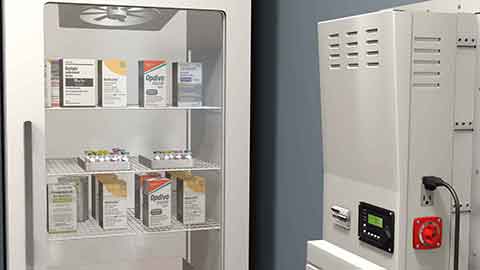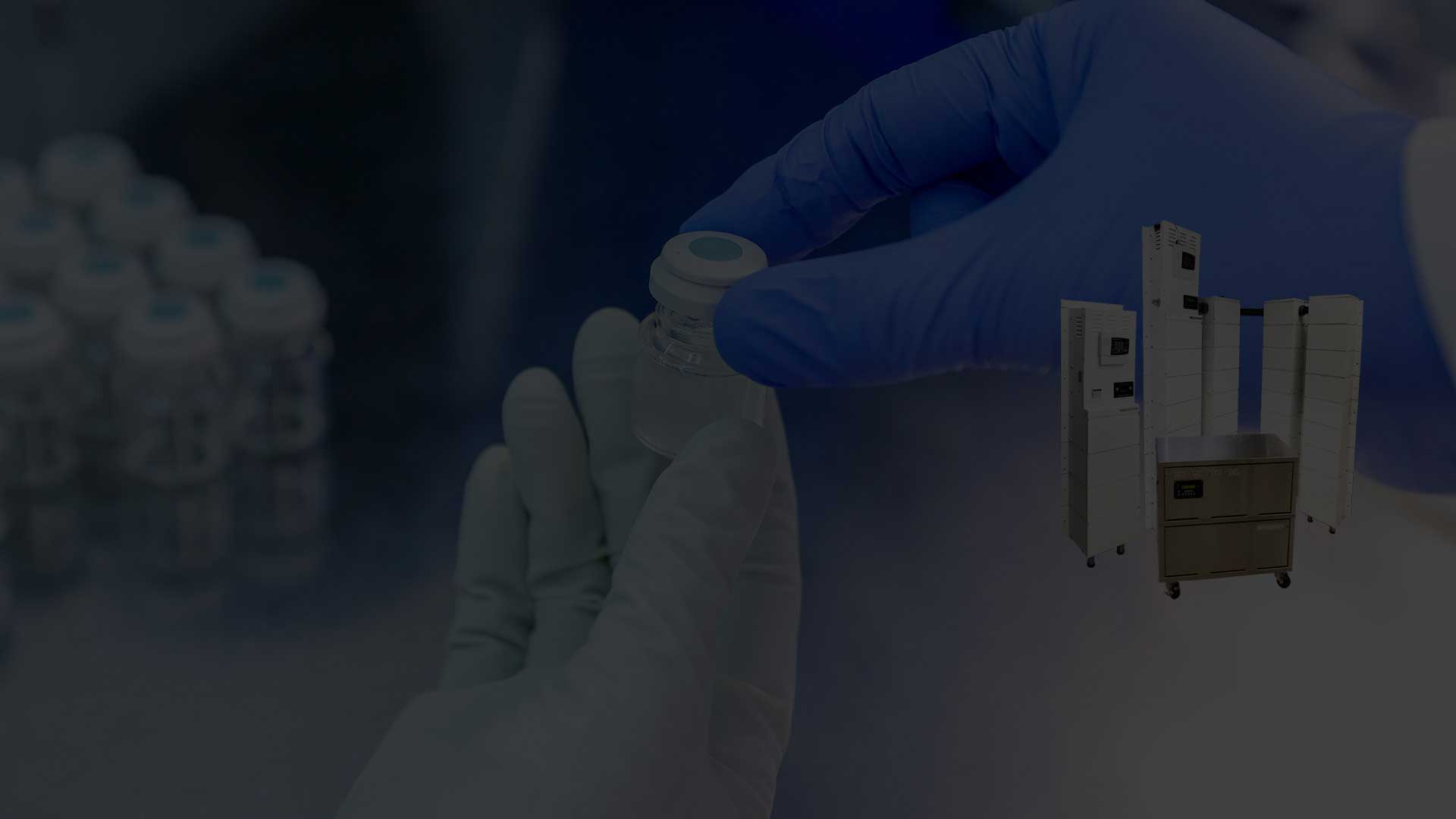Temperature Sensitive Vaccine Storage
Vaccines, which are one of the most crucial tools in infectious disease control, save millions of lives every year. Nevertheless, the truth is that this depends on how they are stored and managed. There are some vaccines requiring special temperature conditions since they are easily affected by temperature. Let us embark on the examination of the different temperature requirements for some vaccines as well as the necessity of proper storage for their safety and effectiveness.
The Science Behind Temperature-Sensitive Vaccine Storage
Vaccines are composed of attenuated or inactivated parts of a key organism that triggers the immune system in a host organism. Normally, the said antigens are very delicate and can easily change in temperature. The cold chain plays a major role in keeping vaccine potency over the journey from production to administration by closely managing temperature in every supply-chain stage.
The potency of many vaccines must be preserved by storing them at temperatures ranging from 2°C to 8°C. The mRNA COVID-19 vaccines require strict low-temperature storage, typically at -70°C, to maintain their effectiveness and safety; failing to do so could result in vaccine degradation.

Why Temperature-Sensitive Vaccine Storage Matters?
Maintaining Efficacy and Potency
One reason why temperature should be controlled at all times is to keep vaccines potent. The practical use of vaccines is to prevent diseases by inducing immunity. This means that the vaccine should never be exposed to a temperature that is too high since it would not amount to anything useful at all in terms of its intended purpose like triggering off immune response and leaving individuals vulnerable to diseases.
They must be stored at recommended temperature ranges to maintain integrity. Most vaccines need to be stored at 2°C to 8°C (36°F to 46°F), while some need freezing temperatures.
For instance, it is necessary to store the polio vaccine at the correct temperature to ensure its effectiveness. When subjected to temperatures beyond the acceptable range, its ability to guard against polio weakens.
These deviations from the optimal range of temperatures might lead to a decrease in potency or even the breakdown of the vaccine into being ineffective. For instance, a vaccine intended for refrigeration would cease functioning when exposed to ice which froze the proteins and antigens inside it.
Ensuring Safety
Safety is another important aspect of good vaccine storage. When vaccines are not stored properly, their reduced efficacy can lead to incomplete immunity in the vaccinated population. Vaccinations become contaminated or damaged when stored incorrectly, which leads to adverse reactions.
Some vaccines also contain preservatives that may decompose or deteriorate due to exposure to wrong temperatures consequently exposing users to safety threats. Proper storage and handling will make vaccines effective, providing the intended protection against diseases and preventing outbreaks.
Reducing Wastage
Incorrect storage conditions may result in vaccine wastage, a significant worry given the restricted availability of numerous vaccines. Vaccines are costly to manufacture, store, and transport. When such vaccines get spoiled due to inappropriate storage conditions, certainly they are wasted and cause a financial burden.
It was essential to uphold the cold chain integrity, especially for mRNA vaccines, during the COVID-19 crisis. Even a small violation of storage regulations could make extensive quantities of vaccines ineffective, worsening global supply issues.
Meeting Regulatory Requirements
The guidelines set forth to handle and store vaccines are specifically provided by the Food and Drug Administration in conjunction with the World Health Organization. To follow these demanding guidelines means that the public will be sure that vaccines have attained the necessary safety standards and work as expected. Adherence is required for health practitioners as this helps in averting legal actions as well as issues to do with ethics.
Best Practices for Vaccine Storage
Healthcare providers and facilities must consistently adhere to best practices in storing and handling vaccines to ensure proper storage conditions. Here are a few suggestions:
Proper Equipment
Make sure to always invest in dependable refrigerators specifically designed for storing vaccines. Household refrigerators should be avoided as they may not regulate their temperatures well. That’s why it’s important to use medical freezers or refrigerators for temperature-sensitive vaccine storage.
Temperature Monitoring
Continuously monitor vaccine storage temperature using digital data loggers equipped with buffered probes. These gadgets offer precise, live data, crucial for notifying staff about temperature deviations. Temperatures are routinely monitored and documented to ensure they consistently fall within the recommended range.
Staff Training
Make sure all individuals responsible for managing or storing vaccines receive proper training. It’s significant for the staff to know how important it is to maintain the cold chain with vaccines because they are temperature-sensitive and different vaccines need specific storage conditions.
Regular Maintenance
Make sure to carry out maintenance on refrigeration equipment frequently to guarantee it operates at its best. Temperature deviations can be avoided by regular inspection of possible issues.
Medical institutions should be aware of the importance of correct vaccine storage, especially in a world that is increasingly dependent on vaccinations as a way to fight some of infectious diseases. We trust that this blog post will provide meaningful information regarding the most effective ways!
Emergency Preparedness
Make sure you have a strategy ready for when there are power outages or equipment failures. This plan needs to incorporate power backups such a Vaccine Refrigerator Battery Backup System or a generator, along with procedures for securely transporting vaccines when required.



